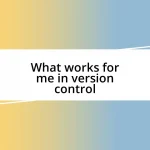Key takeaways:
- Language learning apps provide convenient, flexible access to language study, enhancing engagement compared to traditional classes, but they don’t fully replace real-life conversation and cultural immersion.
- Effective apps track progress and adapt difficulty, utilize gamification to maintain user motivation, and foster community support through active forums for user feedback.
- User interface design significantly impacts learning experience; intuitive layouts and vibrant visuals enhance engagement, while immediate feedback reinforces understanding and builds confidence.

Introduction to language learning apps
Language learning apps have revolutionized the way we engage with new languages. I still remember the excitement I felt the first time I realized I could learn Spanish right from my phone, accessing lessons at any hour. It’s astonishing how these apps have made language acquisition more accessible and personalized than ever.
Imagine carrying a whole language classroom in your pocket! With just a few taps, you can start practicing speaking, listening, and writing. I’ve found that this kind of flexibility allows learners to fit language study into their busy lives, whether it’s during a lunch break or while commuting. Isn’t it incredible that we live in a time when resources are available at our fingertips?
Perhaps you’ve wondered if an app can truly replace traditional language classes. From my experience, while apps are fantastic tools for self-paced learning, they don’t entirely substitute the value of real-life conversation and cultural immersion. However, the blend of technology and personal effort certainly opens new doors in our pursuit of language mastery.

Evaluating app effectiveness and engagement
Evaluating app effectiveness and engagement is essential for finding the best language learning tool. From my experience, an effective app should track progress over time, adapting difficulty as you improve. I recall using an app that provided personalized practice sessions based on my recent performance, keeping me motivated and engaged.
In my observations, engaging apps often incorporate gamification elements, like rewards or challenges. This approach transformed my learning into a more enjoyable experience. I once found myself in a friendly competition with a fellow learner, and this sparked a new level of commitment. It showed me how social features can enhance effectiveness by leveraging community support.
Moreover, user feedback plays a crucial role in evaluating these apps. I’ve noticed that apps with active communities often have higher retention rates, as users share tips and encouragement. A lively forum not only enhances engagement but also provides a platform for troubleshooting, enriching the learning experience.
| App Name | Effectiveness |
|---|---|
| App A | High |
| App B | Moderate |
| App C | High |
| App D | Low |

User experience and interface considerations
When it comes to user experience, the interface of a language learning app can significantly impact how I absorb new material. I’ve encountered apps with sleek designs that felt intuitive right from the start, making navigation a breeze. Have you ever struggled to find a lesson and felt your motivation slip away? That’s what happened to me with one app that looked promising but had a cluttered interface. A clear layout not only enhances usability but also keeps learners like us engaged and focused.
I’ve found that the overall feel of an app – its colors, fonts, and even animations – can evoke specific emotions that enhance learning. For instance, a vibrant, playful design can inspire me, while a dull interface might lead to frustration and disengagement. I remember a time when an app’s cheerful graphics put me in a good mood, making me more eager to dive into my lessons. Isn’t it fascinating how something as simple as design can influence our learning experience?
Moreover, seamless feedback mechanisms play an essential role in my language journey. I appreciate when apps provide immediate responses to my exercises, as this reinforces my understanding and helps identify areas that need improvement. One app I used even offered tips after my mistakes, which not only supported my learning but also built my confidence. It’s as if the app is cheering me on! How much more motivated would you feel if feedback came quickly and positively?














